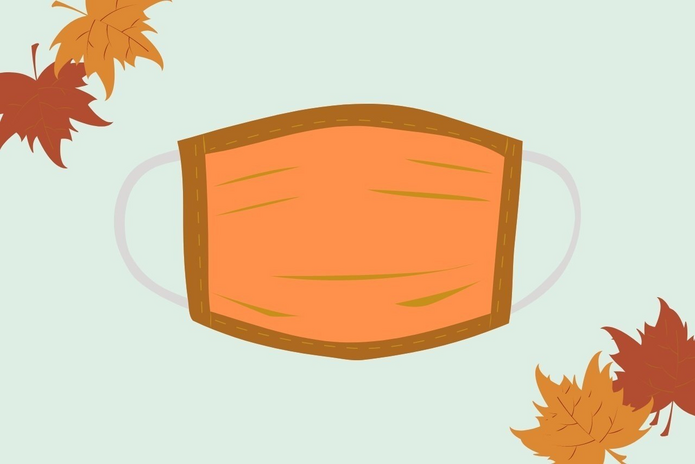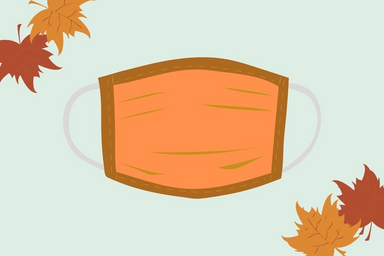When COVID-19 began to spread rapidly during the 2020 winter and spring months, sending countries into quarantine, people started to highlight the environmental wonders occurring due to the pandemic. Water in Venice appeared to be clearer, there was less smog in Japan, and in New York City, pollution was reduced by 50% due to lockdowns and quarantine restrictions. People began referencing these positive impacts, which caused scientists to wonder if this new change would result in long-lasting effects, but they soon realized that other forms of pollution were on the rise. As greenhouse gases and CO2 emissions were decreasing, the amount of plastic waste was increasing.
Where did all the sustainable solutions go?
Due to COVID-19, many people have abandoned their environmentally friendly cleaners for stronger chemicals and Lysol wipes, admittedly myself included. Not only that, but we have collectively stopped using reusable containers, not because of carelessness, but because of this global pandemic. Just as I released a project and article about using reusable cups on campus, the College as well as the coffee shops surrounding campus decided to reject reusable containers in order to avoid contamination and contributing to the spread of the virus.
For similar reasons, cities have suspended plastic bans. A plastic bag ban was put in place in January of 2020 but was soon suspended until July 1 due to the pandemic. Many grocery stores no longer accept reusable bags or require customers to bag their groceries out of an abundance of caution. It isn’t just a few cities no longer accepting reusable items, “[e]ven San Francisco, one of the first US cities to outlaw disposable plastic bags in 2007, issued an edict at the end of March preventing businesses from ‘permitting customers to bring their own bags, mugs, or other reusable items from home’” (Jasmin Chua). As a result, many customers opt for single-use plastic bags, which get thrown away in the landfill and end up in our oceans. It’s a vicious cycle that has rapidly sped up due to COVID-19.
Masks, gloves, hand sanitizer bottles, plastic bags, and other single-use plastic items are discarded, ending up in waterways and oceans. On a regular basis, not including the increase of plastic waste being generated because of the pandemic, “[a]s much as 13 million tonnes of plastic goes into the oceans each year, according to a 2018 estimate by UN Environment. The Mediterranean sees 570,000 tonnes of plastic flow into it annually – an amount the WWF has described as equal to dumping 33,800 plastic bottles every minute into the sea” (“More masks than jellyfish”). Scientists are warning that before we know it, masks may outnumber jellyfish in the ocean.
What now?
It is now the fall of 2021, and things are creeping closer to normal, which is good news for sustainability. The temporary suspension of the plastic bag ban in Charleston ended on July 1, 2020, so less plastic is entering our landfills and oceans. Many people have shifted from single-use masks to reusable ones since the pandemic has continued to affect our lives for so long, thus reducing the number of masks that get discarded in the landfill or on the side of the road. One major challenge to the reinstitution of plastic bans and resuming sustainable habits is that many people are anxious about this. In a CNBC article written by Melissa Repko and Emma Newburger, they interviewed Dan Donovan, spokesman for Giant Eagle grocery stores. When discussing the challenges of resuming environmentally-friendly practices in stores, Donovan said, “There’s the science of what we’re learning, and then there’s the feelings and the emotions and the fears of people, regardless of the science in some instances” (Melissa Repko and Emma Newburger).
Which shops are accepting reusable cups again? (Information received directly from the shops listed below by phone call)
- The College of Charleston
- Einstein’s and Starbucks plan to accept reusable cups as long as it follows DHEC policies
- Caviar & Bananas: Not yet.
- Second State: Yes!
- Huriyali: Yes!
- The Harbinger: Yes!
- Gnome Cafe: Yes!
- The Daily: Yes!
All of this is to call attention to the threat that our habits can be to the environment. While we need to be safe and wear masks inside and in large groups where not everyone is vaccinated, as well as do everything we can to slow down the spread of COVID-19, we can still make choices that are less harmful to our environment. Do what you can to help by composting at home, buying products in containers that can be recycled or reused, recycling single-use plastic where possible, opting for paper bags or bringing your own, throwing your mask in a receptacle, or routinely using reusable masks. Be aware of how you might be contributing to the increase of plastic pollution, and work to find ways to be more sustainable during the pandemic. We’re all in this together.
*Originally published on Synergies*


